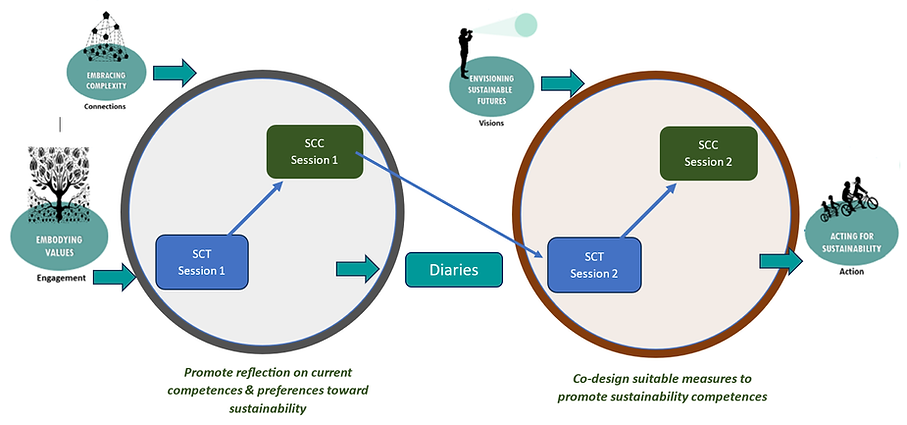Hybrid participatory approach
The hybrid participatory approach was developed and run in the demonstration sites (DS) to jointly co-design a set of intervention measures identified as the most suitable for fostering sustainability in their own school or university.
It integrates elements of research and citizen engagement, in particular group-based techniques. The approach partly draws upon the STAVE tool. To engage students, teachers, and administrative staff, Sustainability Competence Teams (SCT) are organized at all involved DSs. To engage the wider educational community, Sustainability Competence Committees (SCC) were set-up, integrating additional actors from the DSs (school directors, sustainability managers, etc.) and other external actors (NGOs, local authorities, etc.). Notably, the SCTs incorporated those in charge of making the decisions that condition the possibilities of transforming the planned measures into concrete actions.

The 1st SCT and SCC meetings entailed general reflection on the existing competences and preferred means of promoting more sustainable behaviours and practices, while the 2nd meetings focussed on identifying specific measures for empowering and promoting sustainability. The specific measures co-designed to empower and promote sustainability at our demonstration sites in Finland, Portugal, Romania, and Spain aim to initiate various types of positive change:
- Measures to promote the change in the conditions: environmental performance
- Measures to promote change in the people: individual competences
- Measures to promote change in the system: collective competences.
For more details, please see D4.4 Compilation of measures co designed by the educational communities and presented at school and university events.




